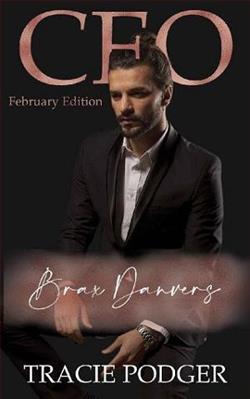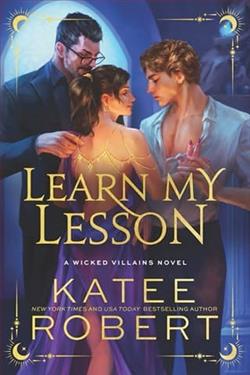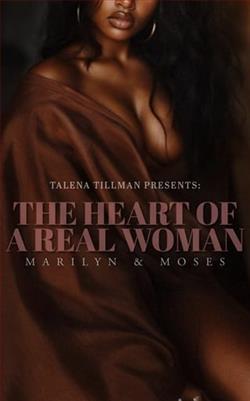Page 98 of Badlands
Although they were inside, Watts was still wearing his cowboy hat—a new one, Nora noticed, creamy silver—along witha silk high-style cowboy shirt, tight jeans, and ostrich boots. He made quite a contrast to Skip, dressed in an NRBQ T-shirt and baggy shorts.
Twenty minutes later, Corrie came hurrying toward their table. “Sorry,” she said as she took a seat. “Sharp called me into a last-minute meeting.”
She smoothed down the front of her jacket and accepted a glass of wine. It seemed to Nora that Corrie’s face was aglow, and she wondered idly if some field assignment had left her sunburned. They ordered and soon were digging into impeccably prepared dishes. The conversation had wandered all over the place, casual banter that nevertheless pointedly avoided the nightmarish situation they’d all recently experienced.
It was Skip who ultimately brought it up. “I’ve been doing some research, these last few months,” he said abruptly, out of nowhere. “Anyone care to guess the subject?”
The table went silent. Nobody needed to guess.
“And no matter how many other examples of cults I came across, I just couldn’t see any way this one matched the standard pattern.”
“How, exactly?” Corrie asked.
“How?Is that a rhetorical question?” Skip asked. Then he raised his hands apologetically. “Sorry. Okay, in certain ways it was a standard cult—the charismatic leader, the shared beliefs, the sexual domination.” He leaned forward, flourishing a fork laden with swordfish and caper berries. “Butthey didn’t do any recruiting—job number one for any cult what wants to maintain its membership. Not only that, but the members were almost universally successful, high-functioning members of society… and they flew under the radarfor years. Even after the death of Oskarbi. Can you imagine the discipline necessary to maintainthat kind of façade—when you meet up with your fellow acolytes only once or twice a year?”
“Yes,” Corrie replied, “it’s the lack of cognitive dissonance—the cult members presenting as normal, productive people—that’s what has the FBI behaviorists baffled the most.”
“Have the FBI found out any more about Oskarbi or the cult since?” Nora asked.
Corrie hesitated. “Not so much about the cult members. They seem to have been fanatically careful to maintain their façades and left little useful evidence. But… well, we were able to do a deep dive on Oskarbi.”
“And?”
Corrie hesitated again. Then she lowered her voice. “I won’t bore you with oaths of secrecy and all that bullshit—only because you deserve to know. But what I’m telling you is totally confidential.”
There was a nodding of heads, and Corrie continued. “In that kiva, we found a trove of Oskarbi’s notes, journals, and papers—along with some of Bromley’s. They were stored in a secret compartment, as if they were holy writ.” She paused, looking around, her gaze finally settling on Skip. “You sure you want to hear this? It’s rough stuff—and maybe you’d just as soon not know more.”
“After spending weeks on research, looking for crumbs?” asked Skip. “You’re damned right I want to hear more.”
Both Nora and Watts nodded.
“Okay. Some of this you already know.” Corrie took a deep breath. “It starts a quarter of a century ago. A young graduate student named Oskarbi is looking for a topic. He somehow hears about a Totonteac Indian named Don Benicio who still observes the traditional religious practices of his ancestors in the Sierra Madre of Mexico. Oskarbi goes to Mexico to become his acolyte.But when Oskarbi grows morbidly interested in the more dangerous aspects of those beliefs—specifically, the path to wielding the powers of darkness—Benicio sends him away.
“So he returns to the States. He writes a book that taps into the new-century zeitgeist and becomes a bestseller. In reality, it’s more fiction than fact: including fascinating but ultimately unimportant bits and pieces of his year with Benicio, tossing in some pseudo-academic jargon to give it a glossy veneer—but he keeps the really important stuff to himself. On the strength of the book, he gets a plum appointment at UNM as an associate professor of anthropology. He’s hip, popular, charming, and good-looking, and he gathers around him a coterie of worshipful graduate students—particularly women. In the few years it takes him to become a full professor, he becomes increasingly interested in the ancient Gallina culture—and its violent demise. He develops a theory: the Gallina were a branch of the Totonteac Indians who, like him, were expelled for dabbling in dark practices. These renegade Totonteacs migrated northward into New Mexico and settled in Gallina Canyon. It was there that they practiced their dark arts… and this was precisely what brought them into conflict with the Chaco Canyon people. They were feared and hated as witches, skinwalkers, worshippers of evil. And ultimately, they were exterminated in what was apparently a proactive effort of self-defense.
“Anyway, to prove his theory, Oskarbi organizes an archaeological field expedition into Gallina Canyon, bringing along graduate students. And on the very first expedition, fifteen years ago, they discover the Great Kiva of the Gallina people—the one we all saw—filled with priceless treasures. This discovery was not considered a mere stroke of luck. Rather, it seems to havetriggered the development of the cult—whose goal was to revive the malevolent powers of the Gallina Indians.
“Oskarbi now shares the darkest and most powerful of the secrets he’d learned in Mexico with his students. They begin coming into the canyon every summer, under the guise of field excavations, to take drugs and perform ceremonies to renew their bond and deepen their connection to the dark powers. This is how the cult sustains itself.” Corrie took a sip of wine. “All goes well for four years. Then, tragedy strikes: Oskarbi dies in a fall off the cliff near the kiva.”
She set down her glass. The table remained utterly silent, waiting for her to continue.
“It might have been an accident. Or maybe Morgan Bromley gave him a well-timed shove. Bromley had become a sort of deputy to him, his right-hand man. Bromley steps into Oskarbi’s shoes… and into the beds of those women. Although Oskarbi’s death was clearly a traumatizing event for the cult—Molly Vine, for example, dropped out of her PhD program—they were still totally invested in their beliefs about the Gallina and their dark rituals. They mummify his body and bring it out every year to parade around during their ceremonies, as a kind of god. Bromley was instrumental in this. What happened later—the women sacrificing themselves in the desert, for example—was mostly his doing. He seems to have been leading the cult into a much darker place than Oskarbi—an outgrowth of his own warped personality.”
“And the body found in the Chama River?” Nora asked.
“That, apparently, was some fellow who stumbled upon the ruins in Gallina Canyon and decided to loot them… but was unlucky enough to choose the moment when the cult was performing their annual ceremonies. They caught him, killed him, mutilated him,and sent his body downriver. This was in keeping with Bromley’s beliefs: no longer constrained by Oskarbi, he had grown eager to perform human sacrifices, which he believed would allow them to raise some sort of spirit or demon. This demon would be under their command, with the power to transform their lives… and perhaps them as well. Sort of like a Faustian pact.”
Corrie spread her hands. “And that was the horrifying ceremony we all walked into.”
After a moment of silence, Watts cleared his throat. “And what does Sharp think of all this? You mentioned you were just in a meeting with him. What’s his take?”
“His take is… that he’s no longer my mentor.”
“What?” Nora asked.
“He’s been kicked upstairs. He’s taking over as SAC of the Albuquerque Field Office, and the current SAC, Garcia, is heading to DC.”
Murmurs of surprise from around the table. “But what about you?” Watts asked her. “Does this mean you’re going to have to break in athirdmentor?”















